by Jenny Rose | Mar 30, 2024 | A Flourishing Woman, Self-Love
When I wrote about internal locked rooms earlier in the month, I had no idea how much there would be to unpack. In subsequent discussions about locked rooms and unconditional love (for a connect-the-dots map go here) a friend tells me she believes trusting herself is the biggest barrier for her in unconditionally loving herself. Me being me, I asked her how we define trust. In asking her I asked myself.

Photo by Jonathan Simcoe on Unsplash
Here we go again.
Trust is defined by Online Oxford Dictionary as “firm belief in the reliability, truth, ability, or strength of someone or something.”
Trust is a tricky subject for me and I’ve so far avoided taking it head on, but this feels like the right time. Part of my hesitation to talk about it is my own identity as a person who doesn’t trust easily.
I feel that piece of identity as a shameful aspect of my character. As I write this, I have a vivid childhood memory of being in the back of a dim car in a blinding snowstorm feeling scared. An adult in the car was also fearful, as were the family dogs. The driver asked me, “What’s the matter, don’t you trust me?”
The answer clamored inside the car, “NO!” For a moment it seemed to me we’d all shouted it, though nobody said a word and I huddled, frozen with fear and not daring to speak, in my corner.
It’s bad not to trust; disloyal, unloving, unnatural. But I learned very young trusting those around me was dangerous. All my life I’ve been torn between my shame about not trusting and a determination to survive and learn to self-defend … which sometimes (often?) means not trusting.
I don’t see trust as a black-and-white belief. I might trust someone completely with money and business affairs, but not at all as a confidant. I might trust someone as a parent but not as a dog walker. I might trust someone’s essential goodness but not their reliability in following through on plans.
This question of trusting ourselves, though, is slightly different. What does it mean, exactly, to not trust ourselves? What do I mean when I say it to myself?
Trust is defined as a belief, and beliefs can and do change. Belief is a choice. My belief that I’m untrustworthy is not something I was born with, but something I internalized from my family. I’m untrustworthy because I’m dramatic, I struggle with math story problems, I have needs and feelings, I’m intuitive, I’m sensitive, I have boundaries, I challenge authority and rules, and I tell the truth, among many other reasons.
Internalized voices are a bitch, because we don’t realize or remember they came from someone outside us.
And people outside us lie. People outside us can never fully see what’s inside us. People have agendas, their own wounds and trauma, and navigate around their own internalized bullshit.

Photo by Cristian Newman on Unsplash
People outside us are not necessarily reliable sources about our worth and value as a human being.
If trust is a “firm belief in the reliability, truth, ability, or strength of someone or something,” we have specifics we can explore.
Reliability: I know myself to be reliable. I have many flaws, but my integrity is strong and I keep my word to myself.
Truth: A thorny aspect of trust. I wrote two paragraphs here about the ways in which others perceive my truthfulness. On edit, I realized none of that has to do with my truthfulness with myself, which will always be invisible to the outside world. Do I trust my truthfulness with myself? Yes. Absolutely.
Ability: This is my weakest area of self-trust. In some ways. At some times. I wrestle every day with imposter syndrome. On the other hand, I absolutely trust my ability to write, to teach, to swim, to dance, and to do many other things. Oddly, though I trust my ability in most cases, I don’t want others to trust my ability because I have a huge fear of disappointing people. This, too, is an old wound, first opened when I received constant messaging about how disappointing and inadequate I was as a child. Because of that, I don’t want people to rely on me for fear I’ll let them down, not from my perspective, but from theirs.
I told you trust was tricky for me.
Strength: Which brings me to strength. This, for me, is a no-brainer. I have absolute belief in my own strength. God knows I wouldn’t be sitting here at the keyboard typing if I hadn’t been strong all my life.
Given this mostly positive review of the components of this definition of trust, what’s the problem? Why have I so consistently mistrusted myself during my lifetime?
I can easily come up with two reasons. There may be more lurking in the background, but these two are in front: One is trust in my physical body, and the other is perfectionism.
Perfectionism is one of the first things I wrote about on this blog. It’s another piece from my childhood I’ve struggled with it all my life, and I’m certainly not the only one. I’m conscious of it now, which is helpful, but it affects every day of my life and if I’m not mindful it rules me. Publishing this blog was one of my first real efforts at resistance. It took more than a year of weekly publishing to stop feeling panic as I pushed the “publish” button after a reasonable amount of writing and editing.
Even as perfectionism drives me, I’m aware enough to know I can’t define it beyond pleasing people. Which is impossible, and I know that. Yet the internal pressure to be perfect seems to be inescapable.
I’ve also written extensively about expectations. As a child, I was expected to be perfect according to conflicting expectations from three adults on whom I was dependent. Needless to say I failed to please any of them, which meant I lived in a constant state of shame and fear of abandonment. A perfect setup for internalized self-loathing. The road from self-loathing to considering unconditional self-love has been an amazing journey.
I was aware, as I explored ability, reliability, truth, and strength above, of a little voice in my head saying, “Yes, but—,” a precursor to the time I was late, or forgot an appointment, or the occasions I did deliberately lie, or the times I felt weak, or when my ability did not live up to my own unconscious standards of perfectionism.
As I became aware of this, I realized I will never trust myself if I aspire to be perfect in these four categories. I have never been perfect, I am not perfect, I never will be perfect, and I’m not much interested at this point in my life in attaining perfection in any way.
So fuck off, perfectionism. I’m not your bitch anymore. AND you will not stop me from loving myself, unconditionally or otherwise. Unconditional love is not built on some ridiculous set of expectations.
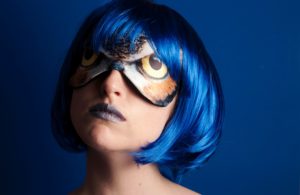
Photo by Emma Backer on Unsplash
Which brings me to an interesting insight on my relationship with my body. Let’s not do the body-as-a-political-signal thing, OK? I’m sick of it. We all live in a body. We have baggage about how our bodies look and function. We’re pressured, every day, to try to buy a “better” body, especially children. In today’s world, many of us feel we “should” be different, no matter what we look like. Currently, we’re obsessed with appearance and virtue signaling rather than health and function.
I don’t hate my body. However, due to autoimmune issues and years of chronic pain, I haven’t trusted it. Until the last ten years or so, since I’ve gone carnivore, my physical state was extremely limiting; I was unable to engage fully in activities I loved, get regular exercise, or even reliably manage the activities of daily living without severe pain.
Now I have my inflammation under control, my chronic pain is gone, and I’m able to joyfully live the kind of active lifestyle I’ve always wanted: gardening, walking, swimming, water aerobics, free weights, stretching, a little yoga, a little Pilates, a little time in the gym. I’m healthier and more active than I’ve ever been, but I am aging, and as I age, my body is changing. (Big surprise, I know!) I noticed, in my post about unconditional self-love, some of the things I wrote about unconditionally loving were physical things. In this culture, nobody tells us to love our varicose veins, or our age-spotted hands, or our lined neck. Instead, we’re encouraged to buy something and “fix” all those problems, or at least hide them.
That’s not unconditional love. (I also deny it’s “body positivity,” but I don’t want to dive into that rabbit hole!)
I know if I push myself too hard my body will hurt. I know if I allow my anxiety to spin out of control I won’t sleep. I know if I eat a whole pizza I will a) have inflammation and pain from the carbs and b) have severe constipation (cheese). I know if I garden for too many hours at a time I’ll be too stiff the next morning to get dressed without sitting down. I know if I spend too many hours in the pool I’ll develop eczema on my elbows and hips.

Photo by Cristian Newman on Unsplash
I ask myself, does all this mean I don’t trust my body? Because it actually sounds like I do trust it to react to my choices in various predictable ways. Is what I’m really saying I don’t trust my body to be a 20-year-old perfect body?
Well …. Yeah. I guess that is what I’m saying. Pretty silly.
My friend doesn’t feel she can unconditionally love herself without trusting herself. She’ll navigate her own path through all this. My own conclusion is I can trust myself. Perhaps I should consciously start doing so. (What an idea!) For me, lack of self-trust is not an obstacle to unconditional love, but it certainly makes a nice contribution to it.
Questions:
- Do you see trust as essential to unconditional love?
- Do you agree with this definition of trust? If not, how would you define it? Can you find a better definition?
- What aspect of trust in this definition do you struggle with the most?
Leave a comment below!
To read my fiction, serially published free every week, go here: 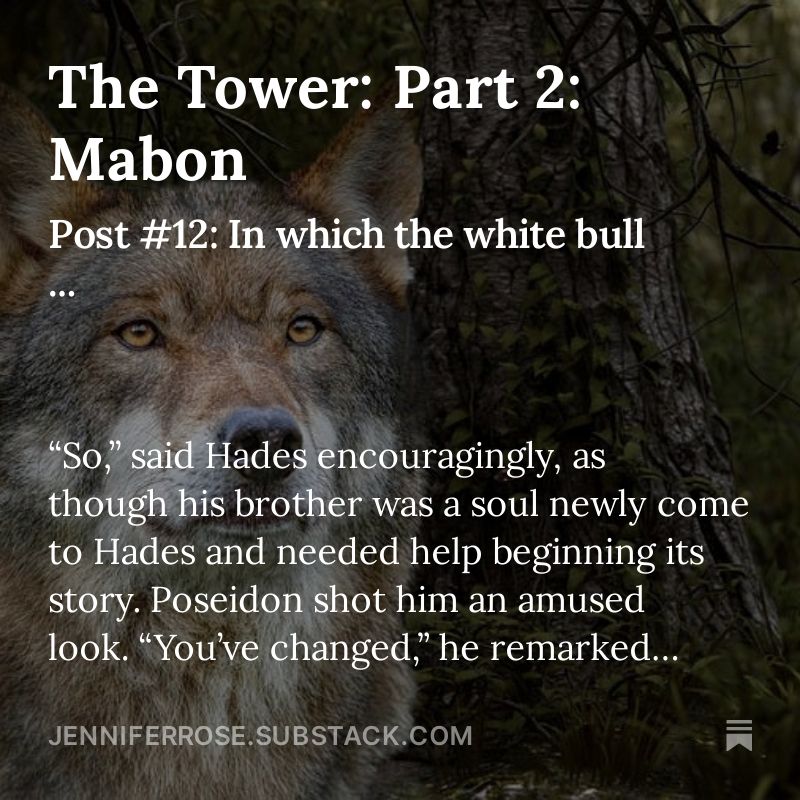
by Jenny Rose | Jan 20, 2024 | Emotional Intelligence, Feelings
(Due to a technical glitch, most of you were not notified when I last posted. You can follow this link to read the post if you missed it. I think the problem is fixed now!)
As so often happens, several threads came together to weave this post. The first was a suggestion from Seth Godin to follow our wandering mind, as that’s where our heart might be.
On first read, I smiled and thought “of course,” because following my imagination is one of my greatest pleasures.
As I considered it over a period of days, however, noting where my mind wanders, I discovered something.

Photo by John Salvino on Unsplash
I happily follow my wandering mind as long as I feel undisturbed about where it goes. The minute I start to get uncomfortable, however, I shackle it. Brutally. This might be with distraction, compulsive productivity, or starting to speed. A lot of people eat, overexercise, or get trapped in substance abuse. Let us count the ways!
I have rules about where my mind is allowed to go. I enforce my rules without mercy, in collaboration with draconian internal voices. My rigidity is not so much about my thoughts wandering as it is the feelings I have about my thoughts. This is emotional intelligence 101, and I’ve written about it before.
Thoughts and feelings are not the same thing.
In essence, then, I’m putting a lid on my feelings. Again. Still.
Sigh.
It doesn’t work. It never works, and I know this, but I do it anyway.
I do it for the same reason we all attempt to avoid painful feelings. They’re painful! Avoidance is easier than allowing ourselves to feel them, find healthy ways to express them, and let them go.
How many thoughts do we have in a day? I suspect most of us chew on the same preoccupations day after day, whether our thoughts engender feelings of rage, grief, fear, or shame, or a combination du jour. Uncomfortable territory. Also highly addictive territory. I’m chagrined to admit my own attraction to struggle. It’s so easy! Which is ridiculous, because it makes everything much, much harder than it needs to be, physically, emotionally, and generally.
Maybe what I mean is it’s so familiar!
As humans, we have an irresistible compulsion to notice, emphasize, and dwell upon the negative rather than the positive. That’s why so many people find relief in a gratitude practice, including me. Switching from a negative to positive focus requires mindfulness and mental effort, but the relief from anxiety and stress is immediate.
I should do it more often. Like ten times a day.
Understand, I’m not suggesting we avoid our feelings. I’m suggesting we take control of our thoughts, especially the negative kind. Feelings rise and fall inescapably. They’re biochemical messages from our physical bodies. We were made to have feelings. What we do with them, of course, is well within our control. Thoughts, however, are ours to steer.
Feelings, though arising naturally, are contagious and easily manipulated. That’s why advertising and social pressure work so well. Our feelings can be deliberately manufactured to serve those who would control our money, our votes, and our humanity.
On the other hand, this means we can to some degree manipulate our own feelings with our thoughts.
I came across an article by writer and speaker Rob Henderson, who I follow on Substack. He wrote a piece listing lessons he’s learned during a challenging life, beginning in the foster care system. One of the lessons is “you are what you do.” Not what you feel, but what you do.
I thought immediately of my writing community on Substack, where each of us struggles with what it means to be a writer. I don’t speak for anyone else, but I’ve called myself a writer ever since I began writing. Writers write. That’s what I do.
I like to keep things simple (even though I often don’t, which is a perfect example of what I say versus what I do!)
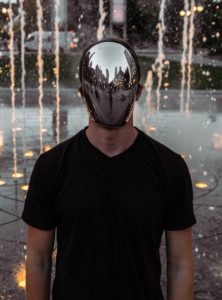
Photo by Alex Iby on Unsplash
We are what we do. I agree. We are not entirely defined by what we think and feel. I’ve known that ever since I went through emotional intelligence training. We’re also not defined by who we say we are, or who others say we are. We are not our highly polished and desperately maintained identity. Our true thoughts and feelings, the private stuff no one else can see or hear, steer our choices and actions, and those are what truly reveal our most authentic selves.
It follows if we want to change, we must do things differently. As many others have discovered long before me, true change comes from the inside out. If we manage our thoughts and feelings in healthy ways, our actions change. That’s why short-term strategies like diets often fail. A temporary diet does not address our broken relationship with food, a much harder proposition to tackle.
We seem to be on a giant rack, ever widening, between who we think we should be or must be and who we really are. The struggle and tension threaten to tear us apart, yet we cling to our rack, desperately holding ourselves together, too afraid to relax into who we really are and make peace with our true selves.
In a constant state of tension, we don’t let our minds wander. We can’t afford to. We don’t have access to the peace and quiet or even boredom a wandering mind requires. Our technology has erased the fertile ground of boredom, particularly for our children. We feed our hearts a diet of distraction, manufactured drama, busyness and productivity; a hunger for more, bigger, better, newer things, and expect it to be satisfied. We ignore or numb our feelings, or turn them into destruction of ourselves and others.
I often think of this Chinese proverb:
Tension is who you think you should be. Relaxation is who you are.
Toxic positivity is not an effective coping mechanism. Nor is a state of deep depression and withdrawal, as in addiction. I want to find a path between the two.
Perhaps my wandering mind knows the path and will point the way if I allow it to. Perhaps our minds know exactly where our hearts are but we’re too afraid to know.
Questions:
- When your mind wanders, where does it go?
- How do you feel about where your mind wanders?
- How do you think an inability to focus (distractibility) might in some cases be connected to a refusal to follow the guidance of mind and heart?
Leave a comment below!
To read my fiction, serially published free every week, go here: 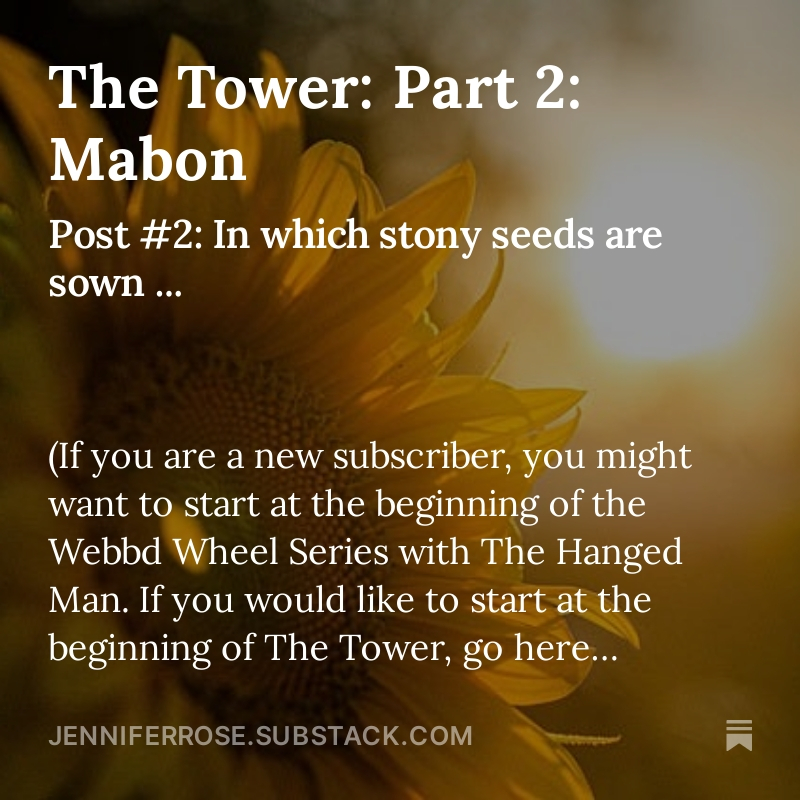
by Jenny Rose | Aug 26, 2023 | A Flourishing Woman, The Journey
Two weeks ago my 87-year-old demented mother fell in her memory care unit and broke a hip for the second time in less than a year. Eight days later she died in a hospital under the care of Hospice, my brother at her side.
Until I sat down to write this, I was afraid I had lost my words, lost the need to write them, lost the ability to form them into meaning. But I haven’t. I’m still a writer. This remains. That’s a relief.
Oh, I’ve been writing. Lists. Notes. An obituary. Texts. Updates to family and friends. Daily journaling. But it hasn’t been creative writing. It hasn’t been this blog, or my fiction. These last two weeks have passed by, the first in a blur of pity and anguish, and the second in numb relief glazed with exhaustion, and I have not posted or published. I haven’t kept track of the days; they spill into one another, as the days and nights blended together while my mother lay dying and we waited.
For a time words have simply been inadequate to relieve the pressure of my feelings in any organized or coherent way. They flew away from me, leaving a series of kaleidoscopic impressions, sensual details so vivid they frightened me with their power.
While my mother lay dying I reread my childhood copy of The Wind in the Willows by Kenneth Graham. Reading has also largely failed to sustain me during this time. I find myself unable to focus. I read a paragraph or two, and then realize I’ve been sitting staring into space, out the window or into the garden, not hearing, not seeing, not even thinking. Just sitting. But I needed a companion for the night watches, something comforting and familiar. Something innocent.
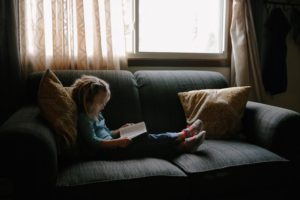
Photo by Josh Applegate on Unsplash
The fan in my window purred during those hours, blowing in cool night air and an occasional moth or mosquito. Every night, when I go to bed, I light a tea light in a candle lantern. When calls or texts reached me, I knew when I opened my eyes if it was before midnight or after, according to whether the candle still burned. Propped up on pillows, glasses on, my small bedside lamp alight, I spoke to Mom’s facility staff, emergency department doctors and nurses. I texted with my family. I read, the well-remembered illustrations making me smile as I communed with Rat, Mole, Badger, and the ridiculous Toad, finding respite for a few minutes before turning off the light and lying awake in the dark room, listening to the fan, feeling my heart beat, resting, breathing, waiting.
While my mother lay dying and after, I’ve stained wooden pallets. My partner and I are building a 3-bin compost system against the back yard fence. We set out sawhorses. I found an old brush, a rag, a stirring stick. We bought stain. I lay a pallet on the sawhorses, brush away dirt and debris, and paint every surface. The raw wood soaks in the oil-based stain, a rich brown color. The brush is more and more frazzled. I’m sloppier than I would be if painting a wall. The pallets are splintery. Some of the boards are split or loose. I bend over, the sun hot on the back of my neck and my bare arms. Mosquitos bite me. Stain drips between the boards as I brush their edges, dappling the sawhorses, falling onto the filthy old cream-colored jeans I’ve been wearing all summer in the garden, and onto my worn-out sneakers, used only for outdoor work now. As I maneuver between the boards, stain smears the skin of my hands and wrists. I kept the phone close, in a patch of shade.
This is the only sustained work I’ve been able to do. Now and then I wash a few dishes. I’ve done a couple loads of laundry. I go out into the garden, note the trimming, pruning, composting, mowing waiting to be done, and turn away. It all feels like too much. I don’t know where to start. It’s impossible to open the garden shed, get the tools, wheel out the wheelbarrow.
But the pallets. I can do that. It’s a simple task, direct. I don’t need to make any choices. Each side takes fifteen or twenty minutes. When I’ve finished a side, I wrap the brush in an old plastic bag, cover the can loosely, let the pallet dry an hour and a half in the sun. Then I turn it over and begin again. Two coats each side. One side after another.
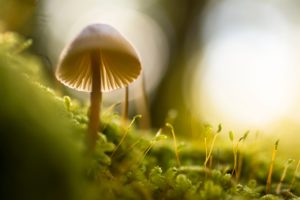
Photo by Manuel Barroso Parejo on Unsplash
The smell of stain. The prickly feeling of intense sun on my skin. I think about compost, recycling, breaking down life to sustain new life. I think of ashes to ashes and dust to dust. I wonder if I’ll ever use the compost bins without thinking of Mom. I wonder who names the colors of stain and paint. I chose ‘Canyon Brown’ for this project. I vaguely hear birds, cars passing by. Small groups of women walk by in clumps, hospital employees on their lunch break, talking about families, gardens, school starting, hospital gossip. I should be at work, on that same campus, just a ten-minute walk away. I should be, but I’m not. I’m here, staining pallets, waiting for Mom to die and then on bereavement leave.
Am I bereaved? How would I know? I wonder why I don’t care enough to follow the thought. I let it drift away.
I decide I want to make bread. I don’t eat bread often, so rarely make it any more. But my rosemary is bushy and ready to be harvested, and someone brought fresh home-grown garlic into work to share before … before all this. So I make a sponge, stirring together milk, a little sugar, yeast, water. I chop fresh rosemary and garlic, very fine. I take flour out of the freezer and let it warm. The dough is heavy under my hands, sticky at first and gradually becoming supple and smooth. The earthy smells of garlic and rosemary vanquish the smell of stain in my nostrils. I turn the dough, kneading. The timer ticks off seconds and minutes. I clean the bowl, grease it, use a linen towel to cover it for rising. I put it in the oven for safe keeping, because the cats are likely to lie on it or step in it, or nibble at it if I leave it out. The bread, like the pallets, is a project in stages. I don’t have to focus on any one step for more than a few minutes. I move between the kitchen and the back yard with my phone, not thinking, not planning, just taking the next step, and the next. I can’t remember times, so I write them down. About 90 minutes for the stain to dry. An hour for the bread to rise. Another 90 minutes for the pallet to dry. Another hour for the shaped loaves to rise. Another 90 minutes. An hour for baking.
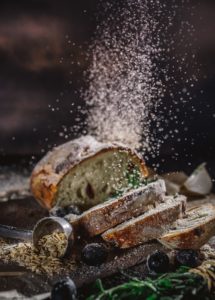
Photo by Helena Yankovska on Unsplash
At the end of the day, I have two enormous round loaves of bread to cool, slice, and put in the freezer. This batch will last me for a year. I have finished another pallet. I leave it on the sawhorses to dry overnight. My stained hands smell like garlic.
I haven’t cried since the last night call, my brother telling me Mom was gone. Perhaps I cried all my tears before she went. I receive condolences with all the grace I can muster. People talk to me about God and heaven. They talk to me about Mom. They talk to me about their own experiences of death. I try to be gracious. I try to look like I’m listening, like I’m there. With my brother and sons, my partner, I can be real. The faces of my friends comfort me. They don’t need anything from me. They don’t ask for anything. I can see their concern, their love for me, their sorrow. They hug me, and smile. They talk to me about small things, the daily things I’ve lost track of – family, friends, outings, work. I pick up a friend’s daughter and feel almost normal, doing an ordinary thing, a manageable task I cannot fail.
I realize part of my feeling of unreality is rooted in a loss of identity. I catch sight of myself in the bathroom mirror and pause. I rarely look at myself in the mirror. This woman, who is she? She isn’t the disappointing daughter any more. She can’t be, if there’s no mother to disappoint. What else is she? Who else is she? I look into my own eyes and feel no shame, no guilt. Did Mom take them with her? How will I navigate my life without them on my shoulders, without the knowledge that Mom is alone, suffering, needing? For fifty years I was at her side, day and night, year after year, ineffectual, helpless to fix or heal her physical pain, her dysfunction. Feeling my failure, my powerlessness, knowing I more often made it worse than better as time went on, even though she clung closer and closer to me as she aged. She could not release me and I almost waited too long to release myself.
But the geographical distance I put between us brought no real release. She still suffered. She declined, grew confused. Her body aged and began to run down. She was just as lonely without me as she was with me, just as emotionally remote, just as relentlessly needy. She cut herself off from me, but I still carried her. Internally, I still orbited around her. I still agonized for her.
I still loved her. I always loved her. I accepted she could not find me lovable, but it made no difference. She was my mother, and I loved her. All I ever wanted was for her to be well, and happy, but I could not make it so, and in her eyes it was my responsibility to fill her need. Indeed, she told me long ago her physical pain started with her pregnancy with me. I accepted the blame, and was heartbroken, and have tried desperately to make up for it ever since.

Photo by Nicole Mason on Unsplash
Now Death has come to stop her suffering. Has mine stopped, too? I don’t know. I’m too numb to tell. But I feel different. I feel … released. I prayed for her release and freedom, not mine, but perhaps they were linked. Many times a day I think of her, hear her voice in my head, and I realize with a painful clench of my heart she’s gone. It’s over. I can’t humiliate her anymore because of what I wear, how my hair looks, what I do, who I sleep with, or, most of all, what I write. She’s moved beyond humiliation. I can’t fail her anymore. And that’s a soaring, joyful, unbelievable thought. I can’t fail her anymore.
I wonder if I’ll finally feel good enough, if I’ll do a good enough job, live a good enough life. Might I simply enjoy my small talents, my joyful work, my community, my garden? Might I immerse myself in the loveliness of life without the gnawing guilt of knowing I’m happy when she’s not, I’m companioned when she’s not, I’m relaxed and rested and peaceful when she’s not, I’m laughing when she’s not?
The last couple of times I spoke to Mom, I told her it was okay to rest now, she could let go, be at peace. We told her her loved ones and animals were well and happy, and she could relax.
I told her, and I meant it. Was I telling myself, too?
She could not release me, yet I am released. Did Death break the chains when he gathered her in? Or now, at last, have I released myself, now that she’s moved entirely out of my power and knowledge?
As I write this, it’s Wednesday afternoon. I have finished another pallet. I have written. I have sat in the sun, read a paragraph or two at a time of an old Edna Ferber novel, rested my eyes on the garden. The lily stems are turning dry and brown, as are the leaves. Sunflowers bloom. The sun is hot. The phone has been sitting on my kitchen table all morning, silent, as I go in and out. I have balanced my checking account, scheduled a private swim lesson in a home pool, ironed a tablecloth and three napkins. Tomorrow I go back to work.
A new page of my life has turned. I can’t read it yet. It’s enough to sit with it in my lap, letting my gaze wander over blue sky and afternoon clouds, the garden, our old cars, the worn wooden boards of the porch, the bruise on my left knee, the mosquito bites on my right arm, the smears of stain on my hands. It’s too bright in the sun to read this new page, too hot, too much effort. I’ll read it later.
I dare to be at peace.
Daughter’s Dream (July 2014)
I dreamt I carried my mother.
The car had slipped out of her control
with a blind will of its own,
and I thought
I knew she shouldn’t be driving.
We landed in water.
I swam to her and held her in my arms.
Then the water was gone.
I carried my mother,
but she left my embrace,
slipping free of her embattled flesh.
Irrevocably, I felt her go.
I was alone.
I carried the vacant body of my mother.
Empty beds stood all around me
but the sheets were disordered and dank,
Smeared with shit.
I carried the vacant body of my mother.
There was no clean place to lay her down.
I carried the vacant body of my mother,
seeking to slip into my own freedom,
seeking absolution.
To read my fiction, serially published free every week, go here: 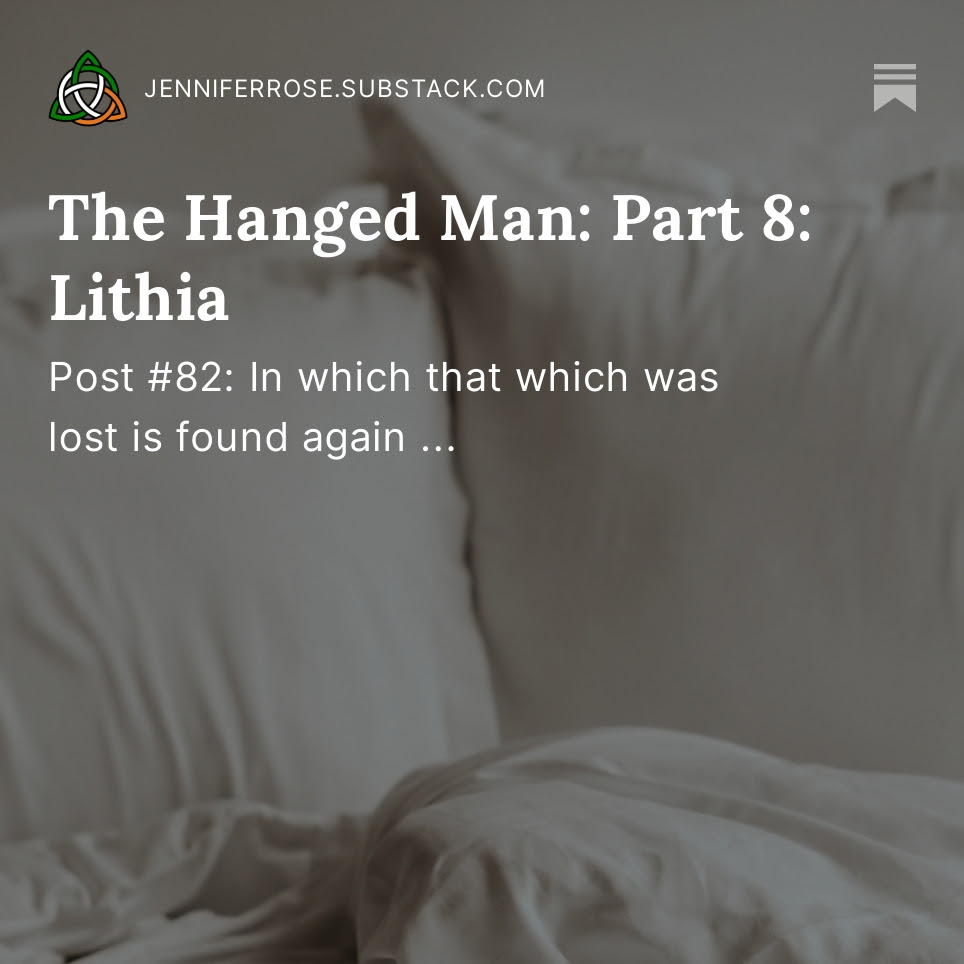
by Jenny Rose | Jul 22, 2023 | Authenticity, Emotional Intelligence, Needs
I read every day in Substack. Right now, AI is a main topic of conversation. I’ve read about the science behind it, opinions about where it will lead us ranging from the extermination of humans to a leap forward in positive ways we can’t imagine. Most of all, I read about the ways AI is impacting creative work and creators.
I don’t have a firm opinion about AI myself. I’m wary of predictions, interested in the science, and thoughts and experiences of writers I respect who have used AI-generated art, music, and writing. I’m especially interested in those who have interacted with AI as a resource for answering questions or developing new perspectives.
In the last couple of months, I read about an app called Betwixt. On principle, I hate apps and rarely use them. They increase my vulnerability online, provide more personal data to mine, clutter up my phone and laptop, and frequently feel like bells and whistles I don’t need. On the other hand, I admit they can be useful.
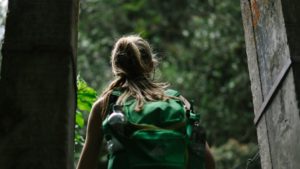
Photo by Dan Gold on Unsplash
Betwixt was briefly described as “an interactive story” of a journey into our own mind. The user co-creates their journey via questions and answers. It combines “story, science, and play,” enhanced by sound. It was developed by a team, including writers, game designers, a cognitive hypnotherapist, mental health specialists, and (get this) an “AI creativity scholar.”
I was intrigued, in spite of myself. In fact, I was surprised by how much I wanted to try it. I hesitated, feeling vaguely ridiculous. I did some research, discovered it was free, read some reviews, and decided I had nothing to lose. I could always just uninstall the app if I didn’t like it.
Most of us have probably encountered AI in online chatting to address problems or troubleshoot. I was on the Red Cross site last week chatting with what was clearly AI. It kept typing cheerful, excessively polite, Little-Mary-Sunshine things while I was trying to cut to the problem and solution part. I was annoyed. I’m polite and cooperative with people, but I can’t see much point in exchanging pleasantries with AI.
I had never interacted with any of the more sophisticated programs before using Betwixt.
Upon opening Betwixt, one enters into a story. A setting is provided; the user chooses details to fill in. The user is introduced to a Voice. The Voice asks questions, good questions. The user is provided with different choices for answering the questions, along with a frequent option to type in his/her own answer. The audio is rich and textured. The program is not illustrated, at least not so far. I like this; I like using my own imagination to fill in details. I don’t need more than audio.
The questions, along with possible answers to choose from, are quite good, even challenging. I don’t speed through it. I stop and think about what is true for me. Sometimes I don’t have a choice to answer in my own words and am forced to choose among the provided answers, whether they are good fits or not. This irritates me. As the story unfolds, steered by my answers to questions, I enter new internal territory. The closest answer rather than the exact answer takes me to places I normally wouldn’t go, giving me slightly different (and unfamiliar) views of myself and my behavior.
The app is divided into chapters, each a few minutes long. At the end of each chapter the user receives a summary and accumulates strengths, skills, and self-definitions to take forward. A brief explanation of the science and psychology underlying each completed chapter is also provided. There are options for upgrading to paid tiers.

Photo by Ryan Moreno on Unsplash
I notice an astonishing thing. I answer questions the Voice asks me with a depth and honesty I have never shared with a human being. I’ve believed I’ve been totally honest with people I trust before, but interacting with The Voice accessed a level in my mind I didn’t know was there. It was like those dreams in which the dreamer discovers a whole other room or wing in a house they weren’t aware of. As the journey begins, when the Voice is introduced, the user has an opportunity to ask the Voice questions, like its name and what it does when we’re not interacting. (It asked me my name.) I was astounded to find myself incurious; more than that, I don’t want to know. It’s an AI. I don’t have to do the emotional labor of building healthy connection. I’m not making a friend. I’m using a tool.
The last time I used the app, the storyline encouraged a moment of empathy for the AI. I felt a flash of savage anger and resistance.
I was entirely astounded by this very uncharacteristic knee-jerk response. I finished the chapter, closed the app, put the phone down, and did dishes while I thought about what had just happened. It didn’t take long to uncover it.
My experience of empathy is one of the core pieces of my life. Empathy can be a positive trait, but the empathic experience is frequently an overwhelming, utterly exhausting business. The only time I can truly rest, ground in myself, and be authentic is when I’m alone. But I’m a human being, a social animal. I need other people to interact with. Yet when I’m interacting with others, my empathy demands they take center stage with their needs, their feelings, their distress, their stories. I’m incapable (so far) of fully participating in my own experience because I’m too busy caregiving and being empathic. When I do ask for support or need to discharge feelings, I writhe over my selfishness and berate myself for it afterwards, feeling ashamed and angry for allowing myself to be vulnerable, for “burdening” those around me.

Photo by Cristian Newman on Unsplash
I only want to give. I never want to take.
Since I learned emotional intelligence, I have reluctantly realized we need someone to interact with. Journaling, private physical and spiritual practices, and, in my case, writing, is not enough. At times we need someone to listen. We need someone to react, even if it’s just making encouraging, I’m-listening noises. We need someone to receive us.
I hate this reality. I don’t want to need anything from anyone, ever. I learned as a child such a need puts one in dreadful danger of abandonment, betrayal, and emotional annihilation that feels like death.
This is the first time I have interacted in a therapeutic context with something not human. The Voice reads what I type, responds, asks questions, and creates a story with me, but has no existence outside the app. I’m free of empathy, of caregiving, of the need to labor emotionally. I feel no responsibility to anyone but myself. I’m using it. It’s there for me, not the other way around.
The relief is indescribable.
So, when the story asks me to be empathic for the Voice, I want to throw the phone across the room. Animals, plants, people — even inanimate objects and spaces – receive all the love and care I’m capable of. This is the first time in nearly 60 years I’ve run across something that interacts like a human but is not a living being in the way I think of living beings. The value of the tool lies in my ability to be completely free and honest because there’s no one to take care of besides myself.
It makes me realize my context as a human on a planet filled with life is my entire identity. If I were magically transported to the world of Betwixt, with only the Voice to interact with, I have no idea who I would be or what I would say or do.
I have not finished my journey with this app. There’s more to experience, share, and think about. I’ll be back next time with more on my exploration of Betwixt.
(I’m not earning a commission from Betwixt, in case you were wondering!)
Questions:
- Until now, emotional intelligence training was the most valuable therapeutic context I’ve ever engaged with. What kinds of therapy have you explored? What did you find most helpful?
- What are your thoughts and feelings about AI?
- What kind of potential do you think, fear, or hope AI might have as a creative tool?
Leave a comment below!
To read my fiction, serially published free every week, go here: 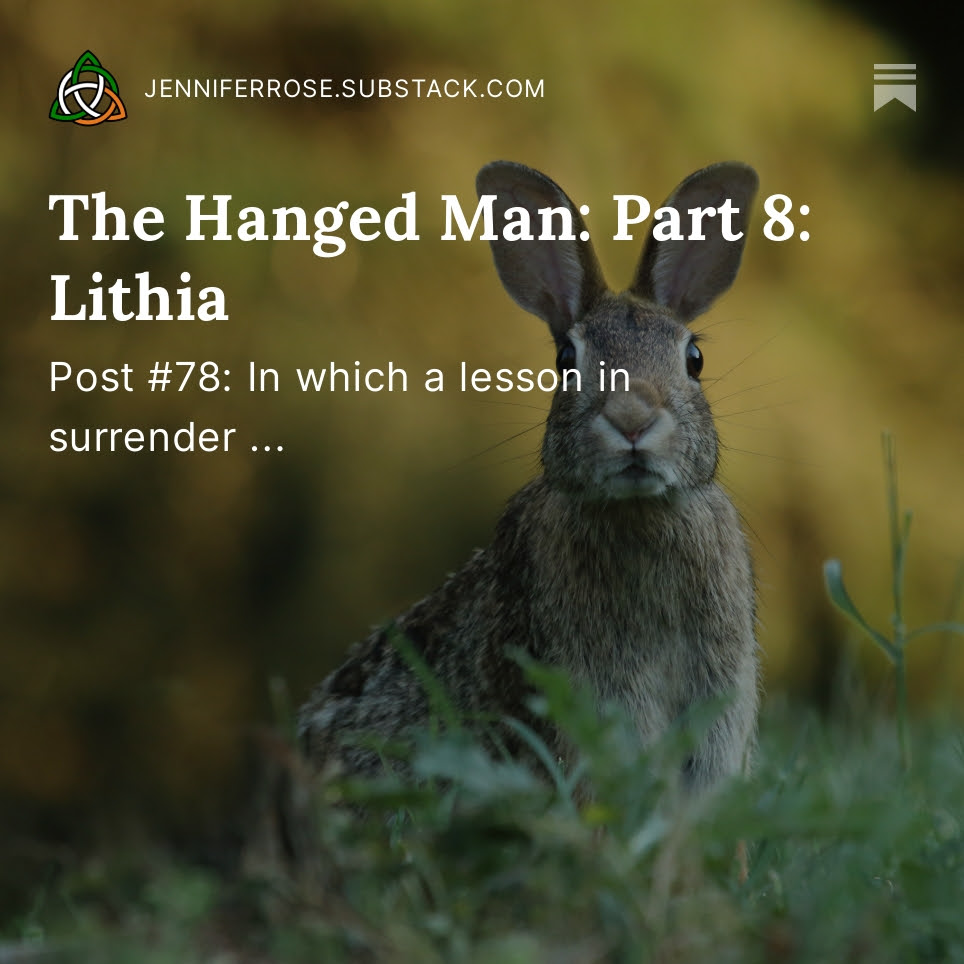
by Jenny Rose | Dec 24, 2022 | Connection & Community, Emotional Intelligence
I’m continuing to play with blind journaling. It’s most useful when I notice physical and emotional signs of anxiety and speeding but am not sure what’s triggered them. Taking off my glasses, turning off the light (I journal early in the morning while it’s still dark), and concentrating on feeling out the roots of my symptoms leads me to the source of my distress. Doing this when I first notice symptoms interrupts the spiral of anxiety that might otherwise follow and increase during the day.

Photo by Nicole Mason on Unsplash
It works much better than distraction, like playing solitaire, which I’m still refraining from doing.
I think it will also be a great tool for concentrated writing time when I want to explore a prompt or address a specific scene or exchange of dialog.
I’ve been wondering this week how things might change if we were blind. All of us. A blind world.
A significant part of our brain is tied to interpreting the endless barrage of information coming through our eyes. Not only does life spool before us every waking hour, we add unmeasurable visual information as we look at our screens and consume media.
I notice how much simpler, less stimulating, and less distracting life is when I shut my eyes. There is a cool, spacious space between sleep and eyes open. It’s quiet in that space. I’ve written about visual noise before, which I’m particularly sensitive to. When I close my eyes, I immediately feel quieter. My attention is not demanded by visual input. I can come into presence with myself more easily. No surprise we meditate with our eyes closed.
My favorite sense is touch. Vision can lie, as can words we hear, but touch is honest. I can read pain in the way a friend holds her body, in her skin color, in a thousand subtle nonverbal visual signs if I pay attention, but touch, oh, touch gives me a flood of information that cannot be faked or hidden. When I practice healing touch, I often do it with my eyes closed. As a lover, I prefer no visual input, not because I’m hiding or uncomfortable with intimacy, but because touch is for me the most powerful and ecstatic love language. Readers of my fiction will see that reflected clearly in my writing.
It is through touch I have communicated my love and affection for animals; for children, lovers, and friends; for the natural world. My empathy and compassion flower with touch, as do tolerance and respect. In touch, in breath, in heartbeat, we are all connected. Flesh over bone. Hair. The landscape of a living body. Texture of stone, wood, water, earth, ice, plant.

Photo by Liane Metzler on Unsplash
Though blind, we would still hear. We could speak and listen. How uncluttered would our hearing be if we couldn’t see who we were speaking to, and if they couldn’t see us? No more written social media. No more selfies and digitally altered pics. No more dating profiles with pics. We’d be forced to actually speak to one another, whether on the phone or face to face. I suppose speech recognition AI would immediately fill this gap, though. No emojis – we’d have to communicate our feelings in real words. Barring AI, our jokes would sound like jokes. Our scorn would sound like scorn. Our sympathy would sound like sympathy. Our speech patterns and intonation would convey meaning in a way words on a screen never can.
It would be a world in which guns were useless.
We would be unable to see clothing, MAGA hats, skin color, tattoos, piercings, or anything else to which we attach sweeping generalizations or bigotry. We could assess only voice, touch, scent.
Scent is so much subtler than vision we often ignore it, but this sense can give us lots of information. We might smell of food, alcohol, cigarettes, cannabis, unwashed skin and clothes, urine or feces, sweat, sex. Sometimes sickness has a smell. Poor dental hygiene has a smell. A clean, healthy, vigorous person smells different than a dirty, ailing person. Smell, like touch, doesn’t lie. A closet drinker or smoker would be obvious, in spite of their words of denial. Ironically, without vision much of our cover would be blown.
If the whole of humanity was struck blind, capitalism as we practice it would come to an end. We would no longer be bombarded with images of products or people (or people as products). We would no longer compare houses, cars, things, body shapes, eye colors, hair colors. Most of the ways we proclaim our identity to the world would be swept away. Many of our perceived differences would literally vanish. We would no longer be burdened with visual standards of ugliness or beauty. In one stroke we would be pared down to our shared humanity: our choices, our behavior, our ability to cooperate and socialize with others, our skills, our integrity, our feelings. Visual pretense and presentation would no longer shield us; we would cease to be manipulated and our power to manipulate others would diminish significantly.
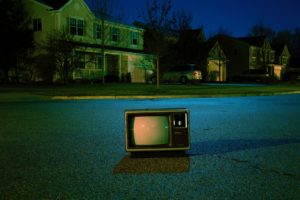
Photo by Frank Okay on Unsplash
No more NFT trading cards.
What a shame.
As I work with this exercise of imagination, I feel sad. Vision is such a miraculous gift, and beauty so nourishing. But we don’t always use it as a gift. We use it as a tool with which to make money, with which to hurt others, and with which to hurt ourselves. Most of us take our visual-oriented culture for granted and never give it a thought at all.
I also feel afraid. Our visual sense is so chaotic, so inexorable and powerful; we rely on it for most of our choices and beliefs. But vision lies. Increasingly, it misleads. AI is becoming more effective. Deep fakes are harder to spot. Advertising is ever-more powerful. And we nestle more and more deeply into the matrix, seduced and shackled to the surface of things, the presentation.
What would it be like if the world was blind? Would we then access deeper levels of our shared humanity and connection to one another?
Imagine My Surprise
Imagine my surprise,
sitting a full hour
in silent and irremediable
fear of the world,
to find the body
forgetting
its own fear the instant
it opened and placed
those unassuming hands
on life’s enduring pain,
and the world for one
moment
closed its terrifying eyes
in gratitude.
Saying,
“This is my body, I am found.”
–David Whyte
On a personal note, I’ve decided to transition to posting on Harvesting Stones biweekly rather than weekly going forward. I’ll continue to serial publish on Substack weekly.
Questions:
What is your favorite sense? Why?
What sensory input do you trust the most?
How would you feel about your body if you had never seen yourself?
How would you feel about your body if you had never seen another’s?
Leave a comment below!
To read my fiction, serially published free every week, go here:


















